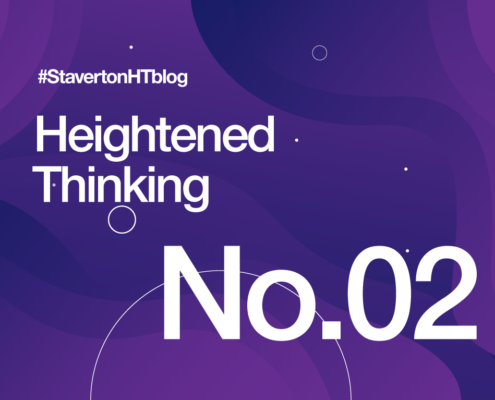Why Standing Desks Are Good For Your Mental Health and Productivity
Although the business case for standing desks is usually predicated on their ability to improve the physical wellbeing of users, there is a large and growing body of academic research that highlights the profoundly beneficial consequences for our mental wellbeing and productivity, too.
A study published in the Journal Psychological Science shows the interconnectedness of physical and mental health. Led by researchers at Ariel University and Tel Aviv University in Israel, the research found that standing to work improved the cognitive performance as well as physical wellbeing of participants. Crucially, the study also showed that the very act of standing up improved the ability of participants to cope with simple mental tasks because of the way it affected their brain functioning.
The researchers concluded that because standing is not as straightforward a posture as sitting neurologically, the very mild stress this puts on our brains improves our ability to cope with certain tasks. The study found that while standing, participants could process information up to a fifth faster than when seated.
Increased Productivity and Wellbeing
These findings are supported by a study carried out by researchers at Texas A&M University’s Health Science Center School of Public Health and published in the journal IIE Transactions on Occupational Ergonomics and Human Factors.
The study monitored employees in a call centre over a six-month period and found that employees using standing desks were more productive than their colleagues who worked at traditional workstations. Intriguingly, the productivity of the workers with standing desks continued to increase over their seated colleagues steadily over time. In the first month, the stand-capable group had 23% more successful calls than their seated colleagues, and by the sixth month, they had 53% more successful calls.
The researchers also recorded the workers’ health using sensors that measured their general levels of physical activity and movement, heart rate and body temperature. The study found that employees who had the choice of whether to sit or stand to work, on average sat for nearly 1.6 hours less each day than their colleagues. The authors of the study also noted that there was an improvement in the way people felt about themselves and their work.
Reducing Depression
The increase in movement and change of posture facilitated by standing desks can even play a part in reducing depression. A 2012 Australian study published in the journal Mental Health and Physical Activity found that time spent sitting while using a computer was correlated with more severe symptoms of depression and higher levels of anxiety. The researchers conclude that limiting the amount of time people spend sitting and instead encouraging them to stand while working could play a significant role in improving their mental health.
This finding is backed up by a new study from researchers at Massachusetts General Hospital (MGH) published in the journal Depression and Anxiety. The study looked at a range of physical activities and lifestyles as well as the genetic predispositions of 8,000 participants and assessed these against their likelihood of exhibiting signs of depression. The researchers found that both high-intensity forms of activity and lower-intensity forms were linked to decreased odds of depression.
“Our findings strongly suggest that, when it comes to depression, genes are not destiny and that being physically active has the potential to neutralize the added risk of future episodes in individuals who are genetically vulnerable”, the report concludes.
What these studies and others like them demonstrate is that standing desks have a role to play in addressing some of the most important management challenges of our time. Productivity is a longstanding issue and the evidence is clear that standing desks have a role to play in addressing it in the workplace. The same is true for the physical wellbeing of staff.
Now, as we become more aware of the challenge and nature of mental health issues, it’s vital that we recognise the role that the physical workplace can play in addressing them. One key way is to encourage people to become generally more active in the office. Agile workplace models are essential in this regard, but when people have to work at a computer for extended periods, it’s important that they are offered choices about their posture while doing so.






